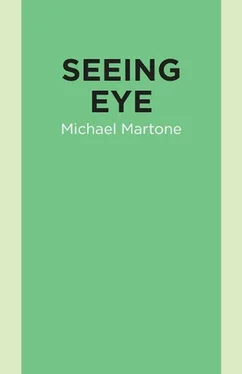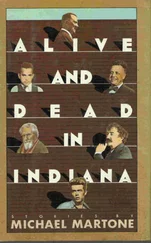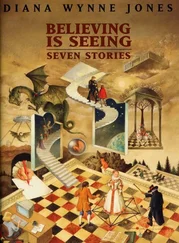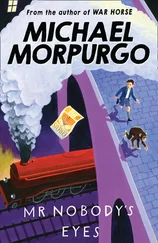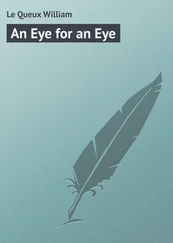Michael Martone - Seeing Eye
Здесь есть возможность читать онлайн «Michael Martone - Seeing Eye» весь текст электронной книги совершенно бесплатно (целиком полную версию без сокращений). В некоторых случаях можно слушать аудио, скачать через торрент в формате fb2 и присутствует краткое содержание. Год выпуска: 2013, Издательство: Dzanc Books, Жанр: Современная проза, на английском языке. Описание произведения, (предисловие) а так же отзывы посетителей доступны на портале библиотеки ЛибКат.
- Название:Seeing Eye
- Автор:
- Издательство:Dzanc Books
- Жанр:
- Год:2013
- ISBN:нет данных
- Рейтинг книги:5 / 5. Голосов: 1
-
Избранное:Добавить в избранное
- Отзывы:
-
Ваша оценка:
- 100
- 1
- 2
- 3
- 4
- 5
Seeing Eye: краткое содержание, описание и аннотация
Предлагаем к чтению аннотацию, описание, краткое содержание или предисловие (зависит от того, что написал сам автор книги «Seeing Eye»). Если вы не нашли необходимую информацию о книге — напишите в комментариях, мы постараемся отыскать её.
Seeing Eye — читать онлайн бесплатно полную книгу (весь текст) целиком
Ниже представлен текст книги, разбитый по страницам. Система сохранения места последней прочитанной страницы, позволяет с удобством читать онлайн бесплатно книгу «Seeing Eye», без необходимости каждый раз заново искать на чём Вы остановились. Поставьте закладку, и сможете в любой момент перейти на страницу, на которой закончили чтение.
Интервал:
Закладка:
I have a screened-in porch, and in the summer I sit on the swing as the neighborhood gets dark. With the light out, the kids who come through collecting for newspapers, cookies, band uniforms, birth defects can’t see me through the gray mesh. I stop rocking. They rattle the screen door and peer in. Their dogs are circling in the quiet street. Positioning themselves at the foot of the dying oak trees, they crane to look up at the roosting starlings. I let the kids wonder for a bit if I am home, then I go to answer the door. It gets darker. The streetlights come on. The wheezing birds wind down, and the locusts begin to saw. Across the street the lawn sprinklers start up, and the water pools in the street, a syrup on the blacktop. The bug traps sizzle, the blue light breaking into a cloud of sparks. Mosquitoes aren’t attracted to the light. I know at least one is on the porch hanging in the still air, sniffing out the heat I’m giving off. Shadows of cats shoot under a parked car. A blind man comes up the street with a new dog. He is talking to the dog. Commands, encouragements, suggestions all below my hearing. I can just make out the gist of things, the cooing and the nicker. A few paces back a trainer from the school walks in the wet grass, skips over the concrete walks. He turns all the way around as he tags along, making sure no one is following.
Once a month the magazines arrive and the clerks will break into a few copies, never from the same address, leaving them scattered on the tables in the break room. After a few days they put the handled magazines in shrink-wrapped bags labeled with a form. Checked explanations for the condition of the enclosed: Destroyed on conveyor. Fire damaged. Automatic equipment error . And sometimes someone will go the extra distance, tear a few pages, pour on some liquid smoke. Customers suspect. They always suspect. I am stopped on the street, asked about the handling codes stamped on the back of the envelope. A C6 floats in the sky of a sunset on a card from Florida. And NB in red tumbles into it. What’s this? The bar code embossed beneath the address like stitches closing an incision. “You read the mail, don’t you?” I’m told. “I don’t have time.” I try to explain. “Things get lost. Overlooked,” I tell them.
The men at the station like to think they are the first in town to see the pictures in the magazines. One will turn the pages when the other two have said they are through. Their free hands are wrapped around the steaming coffee cups, as their heads float from one cluster of pictures to the other. I’m stuck with the cover girl. I look for the hidden rabbit’s head. This time a tattoo. It could be the run in her stocking. The inky smell of the aftershave ads leaks into the room. Business return cards collect on the floor by their feet. They’ll forget after a while that I am watching them. Forget to whoop and point. They’ll forget to turn the magazine my way, holding it like grade school teachers do when they read to the class. They’ll forget, and their eyes will skip and flutter over the pages, the beams crossing and focusing. At last their eyes will be the only movement.
The dogs who don’t guide, the pets, the ones too friendly, who can’t refrain from jumping up and licking your face, the surly ones broken when they were puppies. We all have our routes. The dogs shuffling through each stop read the streets and hedges and utility poles. These dogs know when something is new. The trash can, the parked car, breaks up the picture in their heads. River pilots and the river. Their noses scour out a new channel, revise the map they carry in their bones. They pull their owners along the cluttered streets. These dogs see through their memory.
I hate to surprise an unleashed dog while he’s intent on his rounds. I turn down an alley. A mutt is snapping at a pair of cabbage butterflies. His muzzle draws little circles in the air, tracking the flitting white wings. His eyes are crossed. I can hear his teeth snip. The butterflies are like a whirlwind, scraps of alley paper. Now they tumble around the dog’s body, and the dog begins to turn back on his tail, his wagging, until he dives into his own fur on his flanks, collapses and rolls, barks and paws at the insects hovering above his belly. Then, upside down, he sees me watching him. Instantly he is on his feet, pivoting on his nose. His eyes never leave mine. He is growling but backing up. His embarrassment is human, shuffling his feet, clearing his throat. He shrugs his shoulders, scratches his ear, then changes the subject, woofing right at me. I have the repellent out of its case. My arm is straight out, and I am aiming for the eyes. The dog circles, barking, trying to convince the backyards that he knew all along I was there. He takes a few steps closer, the skin on his face tight and his body rigid. It frightens me that I can read him so easily, how the gestures of people inform his every move. But still, I don’t know dogs. There is no way for me to enter into his thinking, foolish of me for even thinking, at this moment, that there is a way to explain everything, a way to connect. I think of the spritz of chemical, its sting. I think of the one cord of muscle in my forearm used only when I squeeze the trigger or beat an egg. And just then the dog’s eyebrows arch and his jaw relaxes and he starts to pant, a kind of laugh.
Now that the mural in the lobby of the office has been restored, it is much harder to see the dogs, the blind workers. It’s as if they bleached the images away. The phantom working dogs have disappeared into the background of sky and clouds now all blended into a hazy yellow soup. Perhaps the paints were cheap during the Depression, unstable out of the tube. Or maybe the restorers didn’t know when to quit stripping off age and went under into the rough sketch, the outlines, the patches of mixed paint. The workers seem less uniform but more tubercular. They find their own way. The dogs they hold on to now look hairless. I think it’s a shame, but that’s just because I knew the mural before. If I’m here long enough, I’ll have to get used to it the way it is. I’ll forget the old painting, the gray dust the marching kicked up in the picture and the dust itself layered on the painting like shellac.
I almost tell Mabel about the new painting, but I think better of it. Her booth was built in the fifties. It looks like a wrecked spaceship in the marble lobby. Blond wood, goose-necked metal lamps, streamlined steel cash register. The aluminum dashboard candy rack is enamel-plated with the names of extinct brands. I hear the physical plant people talk on break about her concession. What to do with Mabel is the problem. She sits behind the counter touching piles of different things, tightening stacks of bubble gum, riffling town maps. After a while she’ll reach down and touch her dog on the floor.
During the Depression drifters would scrawl messages on light poles indicating what houses to touch for lunch. There would be arrows on the sidewalks, a soaped Xon the brick by the mailbox. So I’ve heard. Now I just see the kids’ games boxed out in colored chalk or maybe a name scraped on the sidewalk with a quartz rock from a gravel drive. I never walk on them and they last.
It’s a sad town. The kids are always giving up their dogs. Their mothers give them Popsicles, and they sit quietly together on the porch gliders, pick at the unraveling strands of the wicker furniture.
“Hey, Mailman Lady,” one of them says. “My dog left.” What can you say?
I say, “I don’t know too much about dogs.”
The kid says almost at the same time, “He went to help a blind person.”
“Well, you’ve got to be happy about that, right?”
“I guess.”
It goes on this way, a cycle of mourning visiting most houses on my route. In the summer, the child, collapsed on the lawn, stares up at the sky. In the winter, he is chewing snow. The kids get new dogs soon, but it is a chronic ache like a stone in my shoes.
Читать дальшеИнтервал:
Закладка:
Похожие книги на «Seeing Eye»
Представляем Вашему вниманию похожие книги на «Seeing Eye» списком для выбора. Мы отобрали схожую по названию и смыслу литературу в надежде предоставить читателям больше вариантов отыскать новые, интересные, ещё непрочитанные произведения.
Обсуждение, отзывы о книге «Seeing Eye» и просто собственные мнения читателей. Оставьте ваши комментарии, напишите, что Вы думаете о произведении, его смысле или главных героях. Укажите что конкретно понравилось, а что нет, и почему Вы так считаете.
